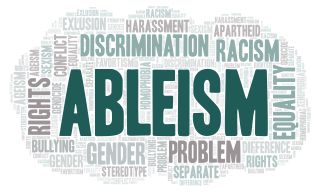Autism
Dismantling Ableism at Home
Parenting across neurotypes.
Posted November 26, 2023 Reviewed by Jessica Schrader
Key points
- Ableism is highly embedded in our society and takes courageous self-reflection to unravel.
- The liberation from normative expectations of our children is transforming for the parent-child relationship.
- Parents can be the link from one neurotype to another, offering tools to navigate the neurotypical world.

I grew up in a family in which there was a “right” way to do things—ethics were black-and-white, and being different was devalued, if not outright scorned. As I navigated through my 20s and early 30s, I sought to find a shred of my authentic self that hadn’t been molded into who I was supposed to be. I then married a man who was also taught the “right”-way mentality, which naturally presented its own challenges. As I evolved in my emotional development and obtained an education that opened my eyes to white privilege and multiculturalism, I became highly reactive to my childhood constrictions. And when our autistic son was born, things were never going to look the “right” way again.
Having a disabled child illuminated the pervasive ableism embedded in our society, which is often invisible or unrecognizable to those who are non-disabled or neurotypical. Ableism exists in every one of our societal systems—including education, work, and housing—resulting in widespread discrimination against disabled people. Our society is constructed on unchallenged notions of normalcy and intelligence for which only the “right” people are deemed relevant and worthy.
As a non-disabled person, I had been free to enjoy the privilege of going about my day in a frictionless way since the world is more or less set up for people like me. As a parent of a disabled son, however, my experience has been quite different.
Many parents of autistic children are confronted with a “tragedy narrative” that comes with getting an autism diagnosis, leading to frantic efforts to “fix” their child. Parents become embroiled in a life of therapies and early intervention that aim to chip away at a child’s peculiarities so that the child can be funneled into mainstream education. This pressure on children to conform to predetermined (and often harmful) expectations stems from our assumptions about what “normal” should look like as well as our rigid mindsets about what is “right” and “wrong.”
Dismantling ableism requires challenging assumptions about the “right” way to live and resisting the urge to impose normative expectations on our children. By embracing the unique identities of our children, we can genuinely appreciate them, support them, and love them—all while letting go of any preconceived visions for their futures that we might have held. Debbie Reber, author of Differently Wired and creator of the Tilt parenting community for parents raising neurodivergent children, offers sage advice: “Stay open, pay attention, and question everything you thought you knew about raising kids." When we do this, she advises, the trajectory of our children’s lives can be reimagined with possibility instead of fear.
Olivia Martinez-Hauge, marriage and family therapist, occupational therapist, and co-director at the Center for Connection and Neurodiversity in Los Angeles, identifies the crucial question parents must ask themselves: “What are my intentions?” Are we pushing our children to act neurotypically? Are we embarrassed by their behavior and worried that we might stand out? If so, can we relinquish our need for control and instead include our children in decisions about their lives and let them shape their identities?
Our responsibilities as parents include attuning to our children and offering gentle guidance in the ways of the world—with an open mind but firm limits. However, many autism interventions focus on making the child adapt to the neurotypical world, neglecting their unique experiences for the sake of conformity. As soon as autism comes into play, there is pressure to alter the child’s experience and shape it into the “right” way of engaging: pretend play, reciprocity, agile motor skills, and “appropriate” behavior. Consequently, instead of the parent entering the world of the child, the autistic child gets dragged into a world that doesn’t match their internal experience.
All parents want their children to be safe and accepted, but for autistic children, the world is often a hostile place. Unfortunately, we don’t live in a utopia where everyone will understand and accommodate the needs of our differently-wired children. Changing this requires vigilant education and advocacy. In the meantime, equipping our children with tools to navigate the neurotypical world can help set them up for greater success while ultimately giving children the choice of how, when, and if they decide to use these tools. This is particularly important for Black and brown autistic children, for whom the risk of being misunderstood in public holds greater danger.
Autistic psychologist Megan Anna Neff illuminates a fundamental dialectic in parenting an autistic child: the delicate act of bridging two worlds. She describes it as walking a bridge to meet the child in their world—a journey in which parents venture into their child’s mind, understanding and embracing it while simultaneously providing the child with the necessary tools to traverse the neurotypical world. This isn’t about conforming to a “normal” standard or socializing in the “right” way. On her prolific website, Neurodivergent Insights, Neff emphasizes that learning social skills should be viewed as gaining cross-cultural skills versus learning “the right way to socialize.” This approach empowers neurodivergent children, focusing not on conforming to “normality” but on safely and effectively engaging with the broader world.
As parents, our role is intricately tied to a crucial dialectic: on the one hand, we strive to build a world that accepts, celebrates, and includes our children, actively working to dismantle ableist systems. On the other hand, it’s equally important to provide our autistic children with the necessary scaffolding to navigate the world as it currently stands. This integration, balancing the dismantling of ableism while empowering our children within the existing societal framework, is a nuanced and significant aspect of parenting in a world that is still deconstructing ableism.


